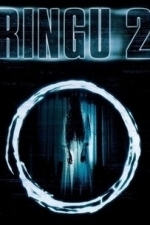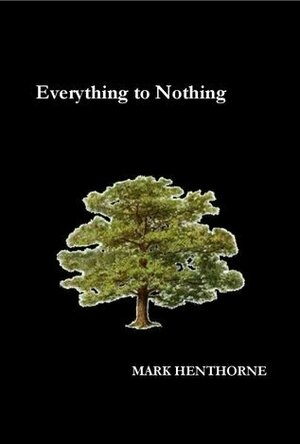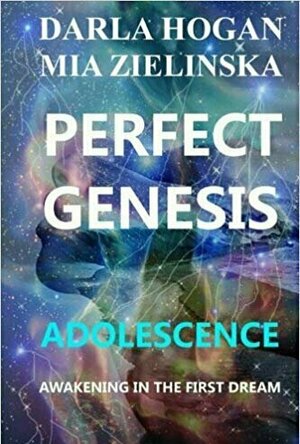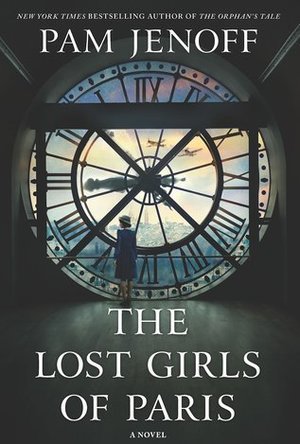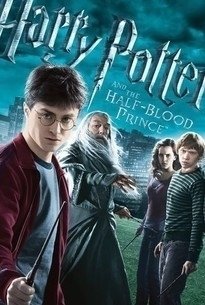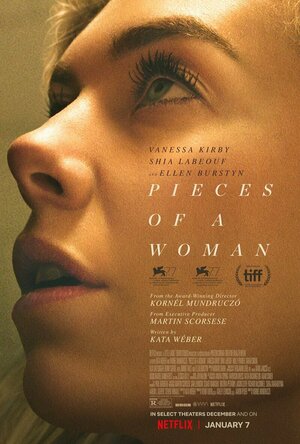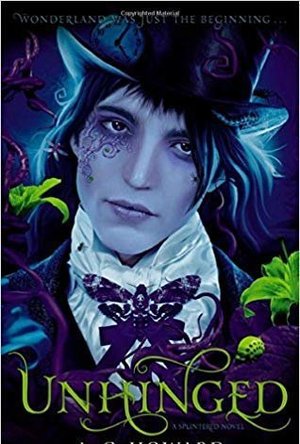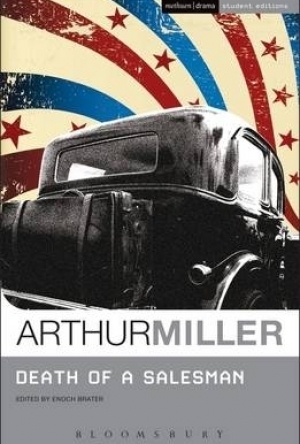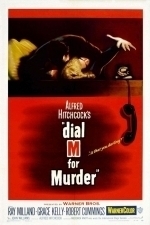Search
Search results
Darren (1599 KP) rated Ringu 2 (Ring 2) (2005) in Movies
Nov 7, 2019
Characters – Rachel has moved her child to a smaller town to start a new life away from the pain of the previous one. she gets a new job, only for the first day on the job, Samara takes her next victim. Wanting to stop the spread of the curse in this new town, Rachel destroys the video tape, only to see herself become the target once again of Samara. Rachel will need to continue the investigation into who Samara was and why she is still haunting the world. Max is one of the co-workers at the newspaper, he isn’t trying to hit on Rachel, but does become the only person that Rachel can turn too. Aidan is the son that has started to take after his father with his love of photography, he does become the target of Samara, we see two different sides to David in this film. Dr Temple is trying to figure out what has been happening to Aidan, first seeing that it could be child abuse, she needs to make sure the child is safe before anything else.
Performances – Naomi Watts is still strong in the leading role, we need her to show extra motherly emotions in the film this time around. Simon Baker doesn’t get a chance to get going in this film, while David Dorfman does make a big improvement because of the extra additions to his character. The supporting cast are not the strongest either with most getting left to limited screen time.
Story – The story here continues to see Rachel haunted by Samara needing to continue to unlock the truth about Samara to save her own son from her curse. Now this is a confusing as for a story because everything felt pretty wrapped up at the end of the film, this did end up just putting a forced sequel out there which tries to build more on the Samara legacy. Where this falls short in the story as by giving us weak supporting characters, having the events literally start the day Rachel arrives in the new town and going against certain things that happen in the first film.
Horror/Mystery – The horror in the film does give us basic moments of scares, though dream sequences a hoping the same jumps can worked in the first film. the mystery continues to look at the mystery about Samara and why she has continued to haunt people.
Settings – The film was moved to a smaller location, while returning to certain other locations with them being an extra clue involved in the film.
Special Effects – The effects in the film have dated already, you can see certain green screens being used, which were meant for uneasy scenes.
Scene of the Movie – The bath surprise.
That Moment That Annoyed Me – The dated effects.
Final Thoughts – This is a weaker sequel that tries to build up on the original legacy, only to dive further into something we didn’t need to get more about what is happening.
Overall: Simple and weak sequel.
Performances – Naomi Watts is still strong in the leading role, we need her to show extra motherly emotions in the film this time around. Simon Baker doesn’t get a chance to get going in this film, while David Dorfman does make a big improvement because of the extra additions to his character. The supporting cast are not the strongest either with most getting left to limited screen time.
Story – The story here continues to see Rachel haunted by Samara needing to continue to unlock the truth about Samara to save her own son from her curse. Now this is a confusing as for a story because everything felt pretty wrapped up at the end of the film, this did end up just putting a forced sequel out there which tries to build more on the Samara legacy. Where this falls short in the story as by giving us weak supporting characters, having the events literally start the day Rachel arrives in the new town and going against certain things that happen in the first film.
Horror/Mystery – The horror in the film does give us basic moments of scares, though dream sequences a hoping the same jumps can worked in the first film. the mystery continues to look at the mystery about Samara and why she has continued to haunt people.
Settings – The film was moved to a smaller location, while returning to certain other locations with them being an extra clue involved in the film.
Special Effects – The effects in the film have dated already, you can see certain green screens being used, which were meant for uneasy scenes.
Scene of the Movie – The bath surprise.
That Moment That Annoyed Me – The dated effects.
Final Thoughts – This is a weaker sequel that tries to build up on the original legacy, only to dive further into something we didn’t need to get more about what is happening.
Overall: Simple and weak sequel.
Phil Leader (619 KP) rated Everything to Nothing in Books
Nov 13, 2019
Everything to Nothing follows the story of three young women and the paths their lives take after one fateful night when they each end up with a man. The repercussions of the events lead by turns to each of them losing everything they had, even if they had nothing or everything to start with.
Sarah is at college and struggling to cope with an absent father and an alcoholic mother. She escapes from this life by clubbing and sex until the night in question when she is introduced to the highs available from hard drugs.
Michelle is at college with Sarah and they sometimes meet out clubbing. Michelle is looking for a man who likes her for who she is rather than what she looks like. Could Simon be that man?
Sally is Michelle's best friend. She is also the daughter of a billionaire businessman and lives a life full of servants, fast cars and designer clothes. She has it all except a man who is not interested in her because of her money.
This story is a real rollercoaster of a book. It did take a while to get going and introduce the characters, taking it time to fill in their personalities and circumstances but this is time well spent for later. Of the three Michelle is necessarily less well developed since there is no specific hook to her storyline beyond her association with both of the others. All the characters are well drawn with a sense of realism, even for Sally who lives a lifestyle entirely outside of the experience of 99.99% of the population. They have their flaws but this a real strength and the various dalliances and romances are painted very well and are not in any way forced.
The emotions the story evokes run the whole gamut. Laugh out loud humour at the antics of David's gran; wanting to shake Sarah out of her clearly stupid and self destructive decisions, down to the very harrowing end of the book.
And that ending is the most powerful part of the book and will stay with you for a long time. This is not a morality tale where bad things only happen to bad people and the good guys ride off into the sunset. Bad things can happen to good people and often for little or no reason and the complete deconstruction of the worlds around the three women in final act, although requiring some suspension of belief at some of the coincidences and circumstances, is shocking. And then becomes even more shocking with every page. You have been warned!
The book is not perfect; it is a little slow at times and the 'flashback' sections when the characters are introduced I felt could have been covered with a couple of paragraphs rather than pages of close description of the events as they happened. And occasionally the prose is a little clumsy when trying to express some fine or complex point about a character. But overall this is definitely worth a read. But only if you don't like happy endings.
Note: This book is rated Adult due to frequent and detailed descriptions of sexual acts and drug use
Sarah is at college and struggling to cope with an absent father and an alcoholic mother. She escapes from this life by clubbing and sex until the night in question when she is introduced to the highs available from hard drugs.
Michelle is at college with Sarah and they sometimes meet out clubbing. Michelle is looking for a man who likes her for who she is rather than what she looks like. Could Simon be that man?
Sally is Michelle's best friend. She is also the daughter of a billionaire businessman and lives a life full of servants, fast cars and designer clothes. She has it all except a man who is not interested in her because of her money.
This story is a real rollercoaster of a book. It did take a while to get going and introduce the characters, taking it time to fill in their personalities and circumstances but this is time well spent for later. Of the three Michelle is necessarily less well developed since there is no specific hook to her storyline beyond her association with both of the others. All the characters are well drawn with a sense of realism, even for Sally who lives a lifestyle entirely outside of the experience of 99.99% of the population. They have their flaws but this a real strength and the various dalliances and romances are painted very well and are not in any way forced.
The emotions the story evokes run the whole gamut. Laugh out loud humour at the antics of David's gran; wanting to shake Sarah out of her clearly stupid and self destructive decisions, down to the very harrowing end of the book.
And that ending is the most powerful part of the book and will stay with you for a long time. This is not a morality tale where bad things only happen to bad people and the good guys ride off into the sunset. Bad things can happen to good people and often for little or no reason and the complete deconstruction of the worlds around the three women in final act, although requiring some suspension of belief at some of the coincidences and circumstances, is shocking. And then becomes even more shocking with every page. You have been warned!
The book is not perfect; it is a little slow at times and the 'flashback' sections when the characters are introduced I felt could have been covered with a couple of paragraphs rather than pages of close description of the events as they happened. And occasionally the prose is a little clumsy when trying to express some fine or complex point about a character. But overall this is definitely worth a read. But only if you don't like happy endings.
Note: This book is rated Adult due to frequent and detailed descriptions of sexual acts and drug use
Phil Leader (619 KP) rated Perfect Genesis: Adolescence in Books
Nov 21, 2019
This is a book of many levels and many emotions. Superficially it is a far-future science fiction book where societies have been engineered by some planet-spanning intelligence to create stable and sustainable places for humans to live. Under this runs a strong current of philosophy and meta physics about exactly what this means for the individuals involved - and the news isn't good.
The plot follows Leonardo Khalid, a genetically engineered genius who has dedicated his life to improving life for mankind. However when he is taken critically ill he agrees to undergo a procedure to scan and record is brain. He is warned that during the process he will appear to inhabit a very real and long lasting dream as his brain is stimulated.
The dream is extremely vivid - so much so that we don't see it just from Leonardo's point of view. So is it a dream? Or a very real future world that he has somehow been projected into? Leonardo certainly believes he is in a dream, but does that condone some of his more morally questionable actions?
There are plenty of questions raised by this book. As Hogan says in a brief introduction, this book is supposed to stay with the reader long after they have read it, and it will certainly do that. At times it is an uncomfortable read - the dream societies place little value on human life and women in particular are treated very badly. Death, violence and sexual exploitation are daily hazards for the members of the societies described, but these are engineered places, not designed to benefit the individual human but to ensure the longevity of the society itself. They have been created with cold and clinical efficiency with no regard for the individual members of the citizenry.
This is a huge dichotomy and the heart of the book. The story itself - Leonardo exploring the land of his dream and overcoming the various obstacles that hinder him and his companions - skates along the top at a good pace, fizzing between plot points and twists, summoning the reader on to read just one more page. But underneath the dark heart will be throwing up awkward questions.
Exploitation of all sorts abounds, particularly sexual exploitation (not all of it men exploiting women). These sections can be an uncomfortable read but they are supposed to be - the questions around power and the abuse of power are valid and the reader is not supposed to be entirely sympathetic with any of the characters or their actions - even Leornardo. The civilisations are frequently brutal, either because of a dangerous environment or a ruthless ruler. People get hurt, people get abused, people die (sometimes horribly) but always the society lives on.
Read this book if you want to have a fantastic story exploring different places but at the same time have something to think about. By the end you will have seen what can happen if the concept of an ideal society is pursued to its limits. And it's not a utopia.
And yes this book will stay with me for a while. Definitely one of the best reads of 2014. Thoroughly recommended.
Rating: Sexual scenes, sexual violence and some torture.
The plot follows Leonardo Khalid, a genetically engineered genius who has dedicated his life to improving life for mankind. However when he is taken critically ill he agrees to undergo a procedure to scan and record is brain. He is warned that during the process he will appear to inhabit a very real and long lasting dream as his brain is stimulated.
The dream is extremely vivid - so much so that we don't see it just from Leonardo's point of view. So is it a dream? Or a very real future world that he has somehow been projected into? Leonardo certainly believes he is in a dream, but does that condone some of his more morally questionable actions?
There are plenty of questions raised by this book. As Hogan says in a brief introduction, this book is supposed to stay with the reader long after they have read it, and it will certainly do that. At times it is an uncomfortable read - the dream societies place little value on human life and women in particular are treated very badly. Death, violence and sexual exploitation are daily hazards for the members of the societies described, but these are engineered places, not designed to benefit the individual human but to ensure the longevity of the society itself. They have been created with cold and clinical efficiency with no regard for the individual members of the citizenry.
This is a huge dichotomy and the heart of the book. The story itself - Leonardo exploring the land of his dream and overcoming the various obstacles that hinder him and his companions - skates along the top at a good pace, fizzing between plot points and twists, summoning the reader on to read just one more page. But underneath the dark heart will be throwing up awkward questions.
Exploitation of all sorts abounds, particularly sexual exploitation (not all of it men exploiting women). These sections can be an uncomfortable read but they are supposed to be - the questions around power and the abuse of power are valid and the reader is not supposed to be entirely sympathetic with any of the characters or their actions - even Leornardo. The civilisations are frequently brutal, either because of a dangerous environment or a ruthless ruler. People get hurt, people get abused, people die (sometimes horribly) but always the society lives on.
Read this book if you want to have a fantastic story exploring different places but at the same time have something to think about. By the end you will have seen what can happen if the concept of an ideal society is pursued to its limits. And it's not a utopia.
And yes this book will stay with me for a while. Definitely one of the best reads of 2014. Thoroughly recommended.
Rating: Sexual scenes, sexual violence and some torture.
Ivana A. | Diary of Difference (1171 KP) rated The Lost Girls of Paris in Books
Feb 3, 2020
<a href="https://diaryofdifference.com/">Blog</a>; | <a href="https://www.facebook.com/diaryofdifference/">Facebook</a>; | <a href="https://twitter.com/DiaryDifference">Twitter</a>; | <a href="https://www.instagram.com/diaryofdifference/">Instagram</a>; | <a href="https://www.pinterest.co.uk/diaryofdifference/pins/">Pinterest</a>;
<img src="https://i2.wp.com/diaryofdifference.com/wp-content/uploads/2019/06/Book-Review-Banner-3.png?resize=1024%2C576&ssl=1"/>;
In the 1940’s, with the world at war, Eleanor Trigg leads a mysterious ring of secret female agents in London. Twelve of these women are sent to Paris to aid the resistance.
<b>They never return home!</b>
Shortly after the war ends, passing through New York’s Grand Central Station, Grace Healey finds an abandoned suitcase beneath a bench. The case is filled with a dozen photographs, each of a different woman.
Setting out to find the women in the pictures, Grace is drawn into the mystery of the lost girls of Paris, their fierce friendship, unthinkable bravery – and, ultimately, the worst kind of betrayal.
Eleanor is a woman that men fear and women hate. Wherever she goes, fear follows. However, in a world of men who lead and men who are in war, she starts a programme in London where she recruits women, prepares them and deploys them to help in the war. The women have to aid the man, transmit radio messages and blend in with the french people. Eleanor makes sure they are prepared for every possible scenario, and she would’ve joined them, if they let her. As much as she seems cruel, she loves her girls like her daughters, and when things go horribly wrong, she blames herself.
Marie never imagined she would be recruited by Eleanor. Leaving her daughter behind and going into the unknown, she is deployed in Paris for a very dangerous mission. But can friendships so easily made survive the dark days of war? And what happens when Marie is one of those twelve women that disappear without a trace, never to be seen again…
And then Grace finds the suitcase full of photos of women and she can’t help but wonder what happened to them. The paths of these three women will indirectly cross over, leaving us, readers, with an amazing story to follow.
The writing is incredible and it transports you right in the 1940’s. Feelings and emotions are overflowing. I am not completely sure how I felt with the ending, as it ended too predictable for my taste, with a lot of unrealistic scenes and no character development, really.
But even despite all that, it warmed my heart and made me rethink my life decisions. The Lost Girls of Paris is a book about women who are brave and loyal. Women who are not afraid to stand up and fight. Women who have everything to lose and nothing to regret. A tale of pure emotion.
Thank you to the team at HarperCollins – HQ, for sending me a paperback ARC copy of this book, in exchange for my honest review.
<a href="https://diaryofdifference.com/">Blog</a>; | <a href="https://www.facebook.com/diaryofdifference/">Facebook</a>; | <a href="https://twitter.com/DiaryDifference">Twitter</a>; | <a href="https://www.instagram.com/diaryofdifference/">Instagram</a>; | <a href="https://www.pinterest.co.uk/diaryofdifference/pins/">Pinterest</a>;
<img src="https://i2.wp.com/diaryofdifference.com/wp-content/uploads/2019/06/Book-Review-Banner-3.png?resize=1024%2C576&ssl=1"/>;
In the 1940’s, with the world at war, Eleanor Trigg leads a mysterious ring of secret female agents in London. Twelve of these women are sent to Paris to aid the resistance.
<b>They never return home!</b>
Shortly after the war ends, passing through New York’s Grand Central Station, Grace Healey finds an abandoned suitcase beneath a bench. The case is filled with a dozen photographs, each of a different woman.
Setting out to find the women in the pictures, Grace is drawn into the mystery of the lost girls of Paris, their fierce friendship, unthinkable bravery – and, ultimately, the worst kind of betrayal.
Eleanor is a woman that men fear and women hate. Wherever she goes, fear follows. However, in a world of men who lead and men who are in war, she starts a programme in London where she recruits women, prepares them and deploys them to help in the war. The women have to aid the man, transmit radio messages and blend in with the french people. Eleanor makes sure they are prepared for every possible scenario, and she would’ve joined them, if they let her. As much as she seems cruel, she loves her girls like her daughters, and when things go horribly wrong, she blames herself.
Marie never imagined she would be recruited by Eleanor. Leaving her daughter behind and going into the unknown, she is deployed in Paris for a very dangerous mission. But can friendships so easily made survive the dark days of war? And what happens when Marie is one of those twelve women that disappear without a trace, never to be seen again…
And then Grace finds the suitcase full of photos of women and she can’t help but wonder what happened to them. The paths of these three women will indirectly cross over, leaving us, readers, with an amazing story to follow.
The writing is incredible and it transports you right in the 1940’s. Feelings and emotions are overflowing. I am not completely sure how I felt with the ending, as it ended too predictable for my taste, with a lot of unrealistic scenes and no character development, really.
But even despite all that, it warmed my heart and made me rethink my life decisions. The Lost Girls of Paris is a book about women who are brave and loyal. Women who are not afraid to stand up and fight. Women who have everything to lose and nothing to regret. A tale of pure emotion.
Thank you to the team at HarperCollins – HQ, for sending me a paperback ARC copy of this book, in exchange for my honest review.
<a href="https://diaryofdifference.com/">Blog</a>; | <a href="https://www.facebook.com/diaryofdifference/">Facebook</a>; | <a href="https://twitter.com/DiaryDifference">Twitter</a>; | <a href="https://www.instagram.com/diaryofdifference/">Instagram</a>; | <a href="https://www.pinterest.co.uk/diaryofdifference/pins/">Pinterest</a>;
Neon's Nerd Nexus (360 KP) rated Sonic the Hedgehog (2020) in Movies
Feb 14, 2020 (Updated Feb 15, 2020)
"ITS NO USE"
Sonic The Hedgehog openes up with a bunch of gold rings surrounding the studio logo while money sounds subtlety ding away in the background and from that moment alone it became obvious what this movie was going to be. One big fat soulless cash grab with only one goal in mind, entice your kids in and then quickly take your money. First of all this is a kids movie comparable to the likes of Alvin and the Chipmunks and just like that movie its not a good kids movie either. Now I like kids movies but Sonic decides to lure kids in with mundane things we have seen a million times in similar films like for instance the floss dance, fart jokes or mocking people by talking over them instead of using its own ideas or delivering fresh interesting content. Theres some very odd constant digs at Nintendo's Mario too which felt really unnecessary. Comedy wise none of its miserable attempts at humour are funny in the slightest either and before long its constant bombardment of strange jokes start to take their tole on your patience. Every single character here is sadly really unlikable too see we have the human characters who seem to have no individual personalities of thier own, lack emotions of any kind and also dont react to dangerous situations with any real sense of fear or shock. Jim Carrey as Doctor Robotnik combines Ace Ventura with The Riddler to make a character that just feels to loud & out of place compared to the robotic performances that everyone else gives. Then theres Sonic himself who is obsessive, anoying, childish, selfish, doesnt shut up and has an extremely short attention span too. So with no one to really sympathise/care about or root for the film better have some exciting action or a good story right? sadly not, theres just no thrills, no excitement, no energy and no heart here at all and definitely no love or passion for the source material. As a film its just plain dull (people were actually asleep and snoring in the seats next to me after just 30 minutes) as the film just runs out of ideas near the start and then resorts to repeating its best ines over and over again at a quick pace until it hits a wall. Did you like the Quicksilver sence from Xmen? dont worry Sonic copies it, how about the Transformers highway chase? dont worry Sonic copies it, what about The Fast and the Furious message about family? dont worry that in here too and thats another issue here, instead of making an original film for Sonic fans they have taken all the bits from films that have simply sold well squashed them into a ball and thrown them at a wall hoping they will stick. So heres the bottom line: Sonic is just another forgettable money maker nothing less nothing more more and just like the Garfield movie, Hop or The Smurfs will anyone be talking about it in a few months?? Naaaaaah
Phillip McSween (751 KP) rated Harry Potter and the Half-Blood Prince (2009) in Movies
Sep 10, 2020
Beautiful Visuals
A part of being a critic means being able to separate the art from the creator. In my recent review of Swing Time, I came to the conclusion that the movie as a whole was still enjoyable despite their use of blackface in one scene. While I don’t agree with everything JK Rowling is saying at this point in time, I can’t deny the magical world that she has created and the stories that lie within. Harry Potter and the Half-Blood Prince, the sixth installment in the franchise, is no exception. In this darker film, Harry is finding himself in preparation of facing off against the evil Lord Voldemort.
Acting: 10
This is my first review of a Harry Potter film. I must say, it has been a pleasure to watch these young actors grow into stars. Daniel Radcliffe was made for the role of Harry Potter and it appears he has matured at the same time his character has. Gone is the young innocence of the first film, replaced by teenage angst and anger. It is hard to imagine anyone else playing the role just as it is hard to imagine anyone but Alan Rickman playing the role of the hard-faced, dark Professor Snape.
Beginning: 10
The mayhem starts almost instantly and wastes no time in getting you sucked into the movie. You know right away what the heroes are up against and it ain’t looking good for the heroes. I appreciated that immediate intensity.
Characters: 10
The gang is all here from the previous five films, the characters we have grown to know and love. I respect the fact that every character continues to grow and mature in their own way, particularly Harry. Thrust into this world of magic and wizardry, becoming an adult becomes ten times more challenging with all the Hogwarts-related biz thrown into the mix.
Cinematography/Visuals: 10
At some point in the movie, there is a scene shot in black and white involving Albus Dumbledore that’s super cool to watch unfold. Visually this film is just as strong as the previous ones, if not stronger as it is working with darker tones throughout. With beautiful camerawork, director David Yates makes you feel the tension of each scene as you are taken on this journey.
Conflict: 8
Entertainment Value: 9
Even if you aren’t a die-hard Harry Potter fan, the film takes you on an extremely intense journey. You experience a rollercoaster of emotions, many unexpected if you haven’t read the books. It is a wonderful setup for the film’s final act.
Memorability: 8
Pace: 7
Plot: 10
Resolution: 5
While the ending was necessary, it definitely left a bad taste in my mouth. it also didn’t quite feel complete as it was an obvious setup for things to come. The last ten minutes were mediocre at best for me.
Overall: 87
I could think of worse ways to spend your time than watching Harry Potter and the Half-Blood Prince. The series continues to improve upon itself and this was a worthy installment. It has just the right level of creepiness factor to pique one’s interest.
Acting: 10
This is my first review of a Harry Potter film. I must say, it has been a pleasure to watch these young actors grow into stars. Daniel Radcliffe was made for the role of Harry Potter and it appears he has matured at the same time his character has. Gone is the young innocence of the first film, replaced by teenage angst and anger. It is hard to imagine anyone else playing the role just as it is hard to imagine anyone but Alan Rickman playing the role of the hard-faced, dark Professor Snape.
Beginning: 10
The mayhem starts almost instantly and wastes no time in getting you sucked into the movie. You know right away what the heroes are up against and it ain’t looking good for the heroes. I appreciated that immediate intensity.
Characters: 10
The gang is all here from the previous five films, the characters we have grown to know and love. I respect the fact that every character continues to grow and mature in their own way, particularly Harry. Thrust into this world of magic and wizardry, becoming an adult becomes ten times more challenging with all the Hogwarts-related biz thrown into the mix.
Cinematography/Visuals: 10
At some point in the movie, there is a scene shot in black and white involving Albus Dumbledore that’s super cool to watch unfold. Visually this film is just as strong as the previous ones, if not stronger as it is working with darker tones throughout. With beautiful camerawork, director David Yates makes you feel the tension of each scene as you are taken on this journey.
Conflict: 8
Entertainment Value: 9
Even if you aren’t a die-hard Harry Potter fan, the film takes you on an extremely intense journey. You experience a rollercoaster of emotions, many unexpected if you haven’t read the books. It is a wonderful setup for the film’s final act.
Memorability: 8
Pace: 7
Plot: 10
Resolution: 5
While the ending was necessary, it definitely left a bad taste in my mouth. it also didn’t quite feel complete as it was an obvious setup for things to come. The last ten minutes were mediocre at best for me.
Overall: 87
I could think of worse ways to spend your time than watching Harry Potter and the Half-Blood Prince. The series continues to improve upon itself and this was a worthy installment. It has just the right level of creepiness factor to pique one’s interest.
Lee (2222 KP) rated Pieces of a Woman (2020) in Movies
Dec 29, 2020
Vanessa Kirby (1 more)
The birth scene
Pieces of a Woman stars Vanessa Kirby and Shia LaBeouf as Martha and Sean, a married couple preparing for the imminent arrival of their first child. But a heartbreaking home birth leaves Martha struggling with grief and becoming increasingly isolated from Sean and her family.
If you've heard anything about Pieces of a Woman recently, it will no doubt be in relation to the home birth scene. Coming right at the start of the movie, and following a brief introduction to our two parents to be, the birth is shot in a single 22 minute take, from the point of Martha's waters breaking in the kitchen, to the arrival of the midwife and the eventual birth of the baby. As with any childbirth, there's a lot going on, a lot of emotions as the drama moves between the various rooms of the house. And everyone involved is outstanding, particularly Vanessa Kirby who is completely convincing. With the impressive, extended intro over, we cut to black and the title of the movie appears on screen. We then move onto the aftermath.
At first, we don't know exactly what went wrong with the birth and Martha and Sean do not have all of the answers either, which is essentially where a lot of the grief and tension arise from. Martha returns to work, to the shock of her co-workers, and it's clear that both her and Sean are very quickly beginning to drift apart, dealing with their grief in very different ways. Sean resorts to drinking, sleeping with Martha's cousin and having emotional outbursts, while Martha remains quietly detached from everyone and everything, and even meets with a local university to discuss donating their baby's body to medical science. Dirty plates stack up in the kitchen, house plants become limp from lack of water and attention.
We also discover that, in among all of the grief, everyone seems determined that the midwife who delivered their baby be blamed, prosecuted and sent to jail for five years, due to negligence and manslaughter. This is something which makes absolutely no sense when you first learn of it and even less sense when we finally arrive in the courtroom towards the end.
As we limp from month to month, the writing becomes worse and the film becomes increasingly frustrating and baffling. There's an impressive supporting cast of friends and family, all delivering their melodramatic monologues with flair, but the writing holds them back and prevents the movie from delivering any of the much needed emotional impact. At times, conversations appear to be badly improvised and just as it feels like we're about to get something of significance out of a scene or character, we cut to a different setting or later period in time, and all momentum is lost.
A bold, impressive 30 minute opening and a performance from Vanessa Kirby which continues to highlight just how talented she is. But apart from that, Pieces of a Woman just feels flat.
If you've heard anything about Pieces of a Woman recently, it will no doubt be in relation to the home birth scene. Coming right at the start of the movie, and following a brief introduction to our two parents to be, the birth is shot in a single 22 minute take, from the point of Martha's waters breaking in the kitchen, to the arrival of the midwife and the eventual birth of the baby. As with any childbirth, there's a lot going on, a lot of emotions as the drama moves between the various rooms of the house. And everyone involved is outstanding, particularly Vanessa Kirby who is completely convincing. With the impressive, extended intro over, we cut to black and the title of the movie appears on screen. We then move onto the aftermath.
At first, we don't know exactly what went wrong with the birth and Martha and Sean do not have all of the answers either, which is essentially where a lot of the grief and tension arise from. Martha returns to work, to the shock of her co-workers, and it's clear that both her and Sean are very quickly beginning to drift apart, dealing with their grief in very different ways. Sean resorts to drinking, sleeping with Martha's cousin and having emotional outbursts, while Martha remains quietly detached from everyone and everything, and even meets with a local university to discuss donating their baby's body to medical science. Dirty plates stack up in the kitchen, house plants become limp from lack of water and attention.
We also discover that, in among all of the grief, everyone seems determined that the midwife who delivered their baby be blamed, prosecuted and sent to jail for five years, due to negligence and manslaughter. This is something which makes absolutely no sense when you first learn of it and even less sense when we finally arrive in the courtroom towards the end.
As we limp from month to month, the writing becomes worse and the film becomes increasingly frustrating and baffling. There's an impressive supporting cast of friends and family, all delivering their melodramatic monologues with flair, but the writing holds them back and prevents the movie from delivering any of the much needed emotional impact. At times, conversations appear to be badly improvised and just as it feels like we're about to get something of significance out of a scene or character, we cut to a different setting or later period in time, and all momentum is lost.
A bold, impressive 30 minute opening and a performance from Vanessa Kirby which continues to highlight just how talented she is. But apart from that, Pieces of a Woman just feels flat.
Eleanor Luhar (47 KP) rated Unhinged (Splintered #2) in Books
Jun 24, 2019
Ah, the cliffhanger!
As you probably know, I am completely infatuated with anything Wonderland, hence my love for A.G. Howard's Splintered series. At first, I didn't know there were more books - I just thought Splintered was a lone novel. Imagine my joy when my dad bought the whole series!
So following Alyssa's adventure down the rabbit hole last summer, Unhinged follows the netherling queen through her day-to-day human life. As she vowed last summer, she hasn't used a single insect in her artwork - in fact, her mosaics are now being created out of her own blood. Thanks to her crown magic, these pieces feature images from the future, but Alyssa doesn't know their true importance quite yet.
I don't want to give too much of the story away, but Morpheus arrives in the human realm - and he isn't alone. As the queen of the Red court, Alyssa must save Wonderland - and defeat Red. It doesn't sound easy, and yet it still proves easier said than done.
Worst of all, it isn't just Wonderland that is now in danger. The whole of the human realm is now at risk, thanks to the netherlings that have left the rabbit hole. Alyssa's boyfriend goes missing, and her mother's secrets begin to emerge, giving a new depth to Alyssa's problems.
I really do love this series. The Wonderland vibe has really been captured, with all its great eccentricity intact. Every little twist on the classic novel is fantastic, and every character is so wonderfully unique.
Expanding on my point about the characters, I am even more in love with Morpheus than I was at the end of the first book. His mixed emotions continue throughout the book, but there are some lovely insights into his true feelings. There is such a great depth to Morpheus's character! Alyssa realises that too, and her own feelings begin to surface more after she is told of Ivory's vision.
Jeb is clearly very fond of Alyssa, but he's caught up in his own little situation with his artwork. This leads to a little bit of trouble... But once he has his memories of Wonderland back, Jeb is back to being overly protective of his girlfriend. He's as defensive in this sequel as he was in the first book.
And Alyssa. Ah, Alyssa... She's finally accepted her mad side. She's accepted herself for all that she is, and although she faces a few rough patches, this acceptance helps her through her battle. But as much magic as Alyssa uses, there's nothing she can do to change the fate of her friends and family...
The ending was superb. Like last time, I just want to read on! I wasn't expecting Alison, Morpheus and Jeb to all get taken away, and I was certainly not expecting Alyssa to end up in her mother's shoes - or rather, her straitjacket.
As expected, this book joins Splintered in my favourites list. It's wonderfully weird, even without Alyssa falling down the rabbit hole. The characters are fantastic, and each netherling is so unique and crazy and great. 5 stars for this, of course!
BookMarked
As you probably know, I am completely infatuated with anything Wonderland, hence my love for A.G. Howard's Splintered series. At first, I didn't know there were more books - I just thought Splintered was a lone novel. Imagine my joy when my dad bought the whole series!
So following Alyssa's adventure down the rabbit hole last summer, Unhinged follows the netherling queen through her day-to-day human life. As she vowed last summer, she hasn't used a single insect in her artwork - in fact, her mosaics are now being created out of her own blood. Thanks to her crown magic, these pieces feature images from the future, but Alyssa doesn't know their true importance quite yet.
I don't want to give too much of the story away, but Morpheus arrives in the human realm - and he isn't alone. As the queen of the Red court, Alyssa must save Wonderland - and defeat Red. It doesn't sound easy, and yet it still proves easier said than done.
Worst of all, it isn't just Wonderland that is now in danger. The whole of the human realm is now at risk, thanks to the netherlings that have left the rabbit hole. Alyssa's boyfriend goes missing, and her mother's secrets begin to emerge, giving a new depth to Alyssa's problems.
I really do love this series. The Wonderland vibe has really been captured, with all its great eccentricity intact. Every little twist on the classic novel is fantastic, and every character is so wonderfully unique.
Expanding on my point about the characters, I am even more in love with Morpheus than I was at the end of the first book. His mixed emotions continue throughout the book, but there are some lovely insights into his true feelings. There is such a great depth to Morpheus's character! Alyssa realises that too, and her own feelings begin to surface more after she is told of Ivory's vision.
Jeb is clearly very fond of Alyssa, but he's caught up in his own little situation with his artwork. This leads to a little bit of trouble... But once he has his memories of Wonderland back, Jeb is back to being overly protective of his girlfriend. He's as defensive in this sequel as he was in the first book.
And Alyssa. Ah, Alyssa... She's finally accepted her mad side. She's accepted herself for all that she is, and although she faces a few rough patches, this acceptance helps her through her battle. But as much magic as Alyssa uses, there's nothing she can do to change the fate of her friends and family...
The ending was superb. Like last time, I just want to read on! I wasn't expecting Alison, Morpheus and Jeb to all get taken away, and I was certainly not expecting Alyssa to end up in her mother's shoes - or rather, her straitjacket.
As expected, this book joins Splintered in my favourites list. It's wonderfully weird, even without Alyssa falling down the rabbit hole. The characters are fantastic, and each netherling is so unique and crazy and great. 5 stars for this, of course!
BookMarked
Becs (244 KP) rated Death of a Salesman in Books
Oct 2, 2019
Wow. Death of a Salesman was a different style of a literary classic that I was honestly never expecting. It grabbed my emotions and pulled on my heartstrings. The plot contained a rollercoaster of events, and I’ll admit, there were a few times I was utterly confused and wanted to throw the book across the room. But towards the end of the ride, I was able to understand what each issue each of the characters had and what it meant to them.
Understanding the pain that Willy was going through. Understanding the issues Biff has with stealing from jobs. Understanding Happy’s need to sleep around. Bringing to light the issue of a salesman’s career and how the job market was going downhill. Death of a Salesman is worth a read or a couple of rereads!
Genre: Literary Classic, plays
Audience: Young Adult and Adults
Interests: Plays, salesmen, American Dreams, family-ties
Quality: The quality of Death of a Salesman is not one you can take lightly. There are moments throughout the play that a younger version of myself would never be able to understand until I experienced the real world for myself. Now, I understand what it’s like losing a job you hoped to have for the rest of your life. Becoming depressed to the point that you just don’t know what to do anymore regarding your family other than hoping that they can make ends meet when you’re gone.
Insights: Death of a Salesman shows that dreams are not always sunny beaches and sprinkles. But that it contains a dark side that will rip your happiness and everything you’ve lived for into a million tiny pieces that will never be able to be fixed again.
Favorite Quotes: “The jungle is dark but full of diamonds, Willy.”
“I realized what a ridiculous lie my whole life has been.”
“I stopped in the middle of that building and I saw — the sky. I saw the things that I love in this world. The work and the food and time to sit and smoke. And I looked at the pen and said to myself, what the hell am I grabbing this for? Why am I trying to become what I don’t want to be? What am I doing in an office, making a contemptuous, begging fool of myself, when all I want is out there, waiting for me the minute I say I know who I am! Why can’t I say that, Willy?”
Aesthetics: I love how Arthur Miller shows the reader what it’s like in a world as a struggling family. Nonetheless, a struggling middle-aged man in the fifties who is battling depression and the loss of his career. It really shows the reader that anything can happen, that you could possibly lose your career. That you could possibly lose your home or even your loved ones. Anything can happen when life decides to wipe your slate and leave you with nothing in return. So the time we have now, we must cherish it. For we never know how much time we truly have.
“The only thing you’ve got in this world is what you can sell.”
Understanding the pain that Willy was going through. Understanding the issues Biff has with stealing from jobs. Understanding Happy’s need to sleep around. Bringing to light the issue of a salesman’s career and how the job market was going downhill. Death of a Salesman is worth a read or a couple of rereads!
Genre: Literary Classic, plays
Audience: Young Adult and Adults
Interests: Plays, salesmen, American Dreams, family-ties
Quality: The quality of Death of a Salesman is not one you can take lightly. There are moments throughout the play that a younger version of myself would never be able to understand until I experienced the real world for myself. Now, I understand what it’s like losing a job you hoped to have for the rest of your life. Becoming depressed to the point that you just don’t know what to do anymore regarding your family other than hoping that they can make ends meet when you’re gone.
Insights: Death of a Salesman shows that dreams are not always sunny beaches and sprinkles. But that it contains a dark side that will rip your happiness and everything you’ve lived for into a million tiny pieces that will never be able to be fixed again.
Favorite Quotes: “The jungle is dark but full of diamonds, Willy.”
“I realized what a ridiculous lie my whole life has been.”
“I stopped in the middle of that building and I saw — the sky. I saw the things that I love in this world. The work and the food and time to sit and smoke. And I looked at the pen and said to myself, what the hell am I grabbing this for? Why am I trying to become what I don’t want to be? What am I doing in an office, making a contemptuous, begging fool of myself, when all I want is out there, waiting for me the minute I say I know who I am! Why can’t I say that, Willy?”
Aesthetics: I love how Arthur Miller shows the reader what it’s like in a world as a struggling family. Nonetheless, a struggling middle-aged man in the fifties who is battling depression and the loss of his career. It really shows the reader that anything can happen, that you could possibly lose your career. That you could possibly lose your home or even your loved ones. Anything can happen when life decides to wipe your slate and leave you with nothing in return. So the time we have now, we must cherish it. For we never know how much time we truly have.
“The only thing you’ve got in this world is what you can sell.”
Andy K (10823 KP) rated Dial M for Murder (1954) in Movies
Sep 15, 2019
An unsavory proposition
When ranking Hitchcock's elite films, Dial M For Murder doesn't usually get mentioned in the top 5 including Psycho, Rear Window, Vertigo North By Northwest and maybe The Birds, but it should be. I went through a Hitchcock phase myself a few years back (I would think most serious film fans would at some point). Although, I still have several to go, most still hold up as suspense/thriller classics definitely including this film.
Ex tennis pro Tony Wendice, now married to beautiful and wealthy Margot, has discovered her secret, she's been seeing another man. Months earlier he discovered a love letter from her lover in her handbag and secretly blackmailed for with this information.
Tony decides to invite an old college acquaintance, currently an unsavory character over to their home to explain his plot for this man killing his wife. He would then stand to inherit her fortunes as he is the beneficiary of her will. The man agrees so the plot is set.
The next evening, Tony is out with friends (to ensure his alibi) and phones Margot late in the evening so she rises to answer with the perpetrator waiting for her. After he slips a stocking around her neck to strangle her, a struggle ensues. Instead of her murder, Margot manages to stab the assailant in the back with a pair of nearby scissors. The man falls to the ground in pain driving the scissors deeper within finishing the job for him instead.
The ensuing police investigation initially feels the facts just don't add up since there was no break in and the man did not have a key on him, but he did have the love letter Tony planted on him before the police initially arrived. Fingers eventually point toward Margot as the killer since the facts seem to lead that way.
The 3rd act is brilliant in the way the eventual plot is discovered and how the police ensure Tony incriminates himself as the true antagonist.
Hitchcock's use of camera framing and movement to reveal certain scene elements only when he wants you to see them is one of my favorite elements of his films. He obviously chose source materials which suited his natural abilities to tell sinister or suspenseful stories and this one works just as well as some of his more famous classics.
Ray Milland is charming and diabolical as Tony, never letting on to his beautiful wife (the gorgeous Princess Grace Kelly) the dastardly scheme he has cooked up for her demise or his initial deeds of blackmail. The reveal at the beginning of the murder plot takes the audience on maybe a typical Hitchcock suspense route, but you never know where or when the twists are going to come, but you are willing to go along for the ride.
Your emotions turn from shock having seen the murder to disgust when Margot is eventually blamed for it and then finally to delight when Tony performs just as the police want him to in the end.
Ex tennis pro Tony Wendice, now married to beautiful and wealthy Margot, has discovered her secret, she's been seeing another man. Months earlier he discovered a love letter from her lover in her handbag and secretly blackmailed for with this information.
Tony decides to invite an old college acquaintance, currently an unsavory character over to their home to explain his plot for this man killing his wife. He would then stand to inherit her fortunes as he is the beneficiary of her will. The man agrees so the plot is set.
The next evening, Tony is out with friends (to ensure his alibi) and phones Margot late in the evening so she rises to answer with the perpetrator waiting for her. After he slips a stocking around her neck to strangle her, a struggle ensues. Instead of her murder, Margot manages to stab the assailant in the back with a pair of nearby scissors. The man falls to the ground in pain driving the scissors deeper within finishing the job for him instead.
The ensuing police investigation initially feels the facts just don't add up since there was no break in and the man did not have a key on him, but he did have the love letter Tony planted on him before the police initially arrived. Fingers eventually point toward Margot as the killer since the facts seem to lead that way.
The 3rd act is brilliant in the way the eventual plot is discovered and how the police ensure Tony incriminates himself as the true antagonist.
Hitchcock's use of camera framing and movement to reveal certain scene elements only when he wants you to see them is one of my favorite elements of his films. He obviously chose source materials which suited his natural abilities to tell sinister or suspenseful stories and this one works just as well as some of his more famous classics.
Ray Milland is charming and diabolical as Tony, never letting on to his beautiful wife (the gorgeous Princess Grace Kelly) the dastardly scheme he has cooked up for her demise or his initial deeds of blackmail. The reveal at the beginning of the murder plot takes the audience on maybe a typical Hitchcock suspense route, but you never know where or when the twists are going to come, but you are willing to go along for the ride.
Your emotions turn from shock having seen the murder to disgust when Margot is eventually blamed for it and then finally to delight when Tony performs just as the police want him to in the end.
